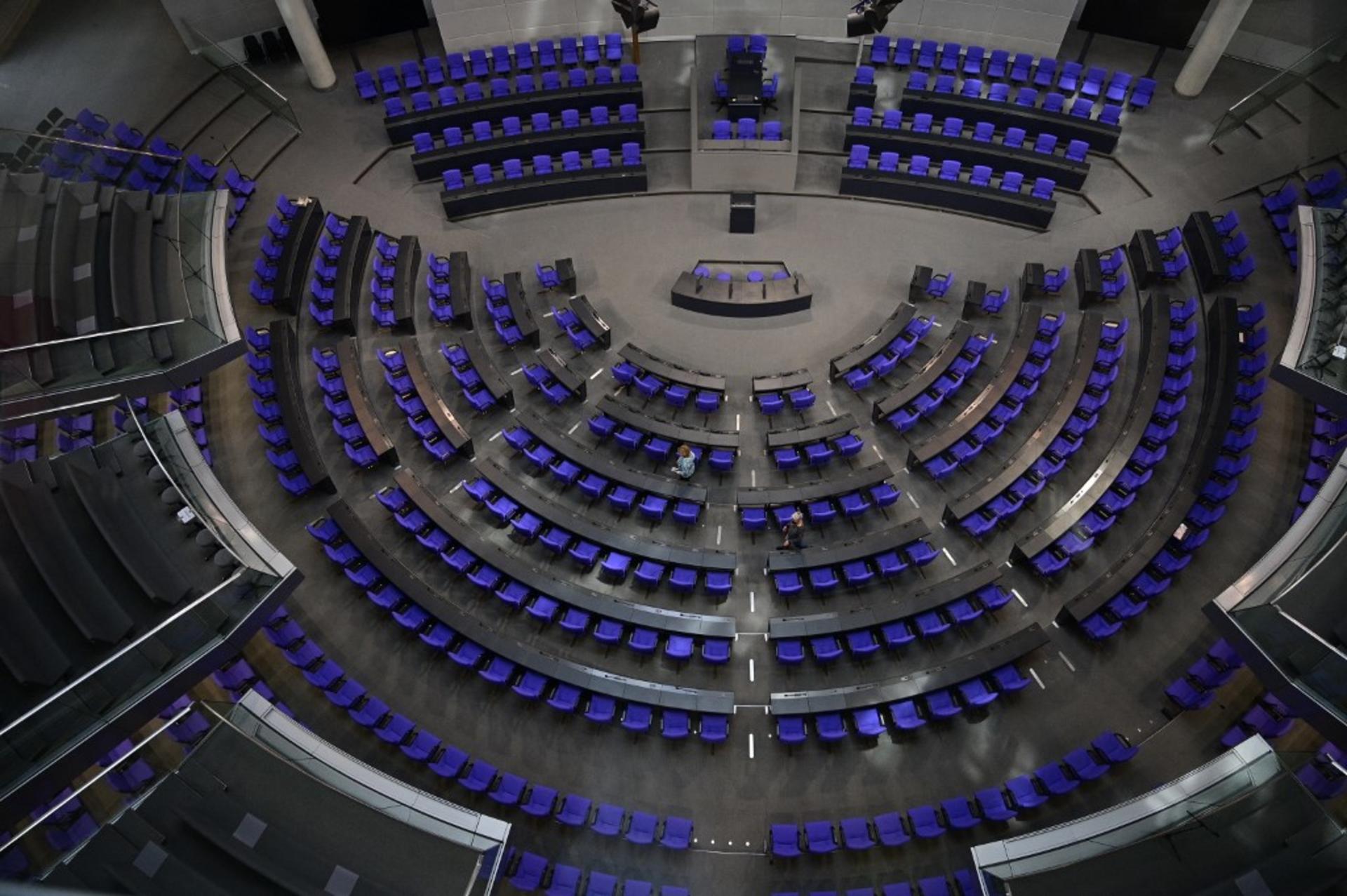Characteristics of German federalism – By Dr. Gamini Kariyawasam

Federalism is the organisational principle of the Federal Republic of Germany which has grown and developed over the years and decades. It is based on the former independent dukedoms and free towns which until 1860 composed the “Holy Roman Empire of the German Nation”.
“Holy Roman Empire of the German Nation”.
Two hundred years ago, Emperor Franz II abdicated the imperial throne of the Holy Roman Empire of the German Nation. This act brought about the dissolution of a political structure that had played a decisive role in the history and development of Europe from the year 962 up to 1806.
The history of the Holy Roman Empire of the German Nation is the heritage not only of Germany and Austria but of the whole of Central Europe. Territories that had once been joined together in the Old Empire now belong to Denmark, the Benelux countries, France, Switzerland, Italy, Slovenia, the Czech Republic, and Poland.
The Holy Roman Empire had a multi-ethnic and multi-lingual structure, a decentralized and multi-confessional form. It was held together by the person of the Emperor as the uppermost feudal lord, but opposite him stood the higher nobility with their own great power. As a result, the constitutional development of the Empire was completely different compared with other European power structures. In contrast to Spain, France, or England, the Holy Roman Empire, throughout its existence, was never a hereditary monarchy; the emperor always remained dependent on the vote of the select group of ecclesiastical and princely electors.
The many forms of the German federalism have developed during the 19th and 20th centuries, only interrupted by centralizing tendencies by the Nazi regime and the former GDR. After the Second World War, in 1945, politicians decided to maintain the federative system in Germany because it meant good control through its division of power.
But since 1990, federalism has been more and more criticized. The following developments were the reasons for this: Since German unification in 1990, the efforts to create equal life standards in the East and West demanded more commitment from the “Bund” (Federation) and the financially stronger countries. Furthermore, politicians discussed the tendency to misuse the German “Bundesrat” (Regional Parliament) as an instrument for blocking the current government’s decisions.
German National Flag
Germany is divided into 16 states or Bundesländer.
Many of the more popular countries in Europe are divided into regions. Germany is instead divided into 16 states or Bundesländer. Two of the states you see on the map are what might be known as city-states. They are Berlin and Hamburg. Bremen and Bremerhaven combine to become a third city-state. The rest are Flächenländer or area states.
Obersee Lake near the Austrian border
Other factors for criticism are the growing intertwining of policies of the “Bund” (central state) and the “Lander” (German countries), the Bunds’ growing influence on regional policies and the loss of influence of the different regional parliaments.
At the same time, due to the European integration process, regional policies are more and more transferred to the supranational EU level. The balance between a strong national state and the democratic autonomy of the different countries must always be considered.
Federalism is a principle to organize a state. A federative state is subdivided into smaller units that can draw up their own political regulations (contrary to a decentralized unitary state!) and have state quality themselves. The high level of autonomy of the member states is shown in the fact that all members have their own legitimacy, rights, and competencies.
These cannot be limited or restricted by the central state except for a few cases, in which it is absolutely necessary to receive the approval of the member states.
For and against
If a state has a federation, this is mostly based on some historical, geographical, or cultural peculiarity. The course of German federalism lies in its history of the former dukedoms and cities, contrary to countries such as the USA where the geographical factor (large country) favors a federative organization, or Switzerland, in which case federalism was the natural way to govern the four independent regions with their respective traditions and languages. Therefore, in Germany, federalism was the means of obtaining unity within the state.
The name “Federal Republic of Germany’ shows the federative character of Germany. It says that Germany is a republic which consists of many different states. Above all, however, stands the “Bund” in its function as a superior central state.
The countries which in 1949, formed the federal Republic of Germany, were Schleswig Holstein, Lower Saxony, the free towns of Bremen and Hamburg, Rhineland Palatinate, Northrnine-Westphalia, Hessia, Bavaria, Baden, Wurttemberg-Baden and Wurttemberg-Hohenzollern. The last three countries formed the state of Baden-Wurttenberg in 1952. Until the unification in 1990, West Berlin had a unique status.
After the war, the Western Allies had made a condition for the implementation of the newly founded basic law in Germany: Berlin delegates must not have the right to vote either in the “Bundestag” (Parliament) or in the “Bundesrat” (Regional Parliament) and it must not be governed by the “Bund” (Central state). The country of Saarland joined the federation very late in 1957. After the unification, the countries of Mecklenburg Western Pomerania, Saxony, Thuringia, Saxony-Anhalt, and Brandenburg joined the federation.
It is mainly through four main aspects that the state’s federative qualities are shown:
- Every state has its own constitution
- Every state has its own institutions for implementing the constitution
- Every state has its own functionaries
- Every state has its own competences
The independence of “Bund” and “Lander” is shown very clearly if we look at the constitutional organs.
Parliament and government
The “Bund” and the “Lander” are based on a representative parliamentary governing system. This system consists of a Parliament elected by the people and of governments which are appointed by this Parliament. For the “Bund”, are the “Bundestag” (German Parliament), the Chancellor, and his Ministers.
For the different “Lander”, these are the Regional parliaments, the Prime Ministers of the countries, the State Ministers (with the exception of the countries of Bremen and Hamburg which have a Lord Mayor and Senators, and Berlin, where there are House of Representatives, the Governing Mayor, and Senators). However, there is only one head of state on the central state level: the Federal President.
As a rule, “Bund” and “Lander” administer themselves. Every German state has its own administrative organs, i.e. a Ministry for the Interior or a Ministry for the Environment, whose competencies are strictly regulated. Since the different German countries execute the federal laws themselves or on behalf of the “Bund”, administrative work is the main obligation of the countries. Therefore, the administration of the different countries is of higher importance than the federal administration. Basically, it constitutes the only state administration of the Federal Republic of Germany.
“Bund” and “Lander” have their own courts for different legal matters. In case of a legal suit, citizens will first be confronted with the court of the country they live in. The federal courts, i.e. the Federal Court of Justice in Karlsruhe, the Federal Administrative Court, or the Federal Financial Court, are at the topmost level of the court hierarchy.
Soon after the end of World War II, in the summer/autumn of 1945, the Allied occupation forces permitted the establishment of political parties in Germany, including SPD. CDU/CSU and liberal parties. This means that before the constitution was actually elaborated, political parties helped to establish democracy and political institutions in post-war Germany. This permission granted by the Allies was crucial when it came to shaping the federal political party system in Germany.
River Rhine
This was the reason why in the beginning, there were a lot of local parties that existed nowhere but in their specific regions. Since that time, all parties are organized in so-called “Lander” associations.
The party’s influence when it comes to shaping the political opinion of the people can be seen in the general and regional elections. Because of the “Lander” associations of the political parties, those parties can represent their regions much better than otherwise.
The “CSU” party however is an exception to the rule. It is an independent political party, but at the same time, it acts as the affiliated party to the CDU. The CSU limits its actions to the region of Bavaria. As a countermove, the CDU party is not represented in Bavaria.
Traditional German Folk Dances
Task sharing
In a federal State, all tasks of the state are shared between the “Bund” and the “Lander”. However, there are areas where the countries have their own regulations, as is the case in the educational field. Hamburg for example has other regulations for their schools as Baden-Wurttemberg.
As far as GCSE exams are concerned, Bavaria’s schoolchildren have to go to school for 13 years before taking final exams, whereas pupils from Eastern German countries can sit for their exams after 12 years of school. However, there are limits to independent regulations. The principle of unity and the obligation for more transparency in the Federal Republic of Germany make it compulsory to have the same laws and regulations in many areas of daily life.
The legislation of the “Bund” includes:
* Alien and immigration law
* Foreign issues
* Civil law
* Defence
* Air traffic
* Post and telecommunications
* Citizenship
* Criminal Law
The legislation of the “Lander” includes:
* The respective country’s law
* Municipal Law
* Education
* Culture
* Media
* General police and regulatory law
In the Federal Republic of Germany, the competencies are not shared according to different political fields but according to the nature of the competencies. This means that the central state (Bund) takes care of elaborating the legislation, it is the country’s duty to see to the execution of the central state’s rules.
Since Germany is part of the European Union, it has passed on some of its competencies to the EU, especially in the fields of trade and competition, agriculture, currency, and environment.
Dr. Gamini Kariyawasam
(Former Srilanka Counsel General to Germany .)
German National Anthem – “Das Deutschlandlied”
Germon Bonn City.






:max_bytes(150000):strip_icc():format(webp)/germany-states-map-56a3a3f23df78cf7727e6476.jpg)









